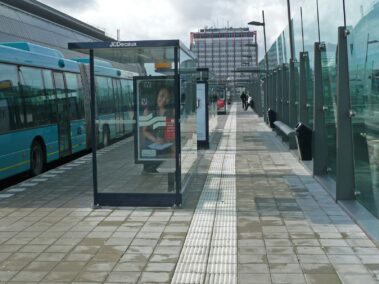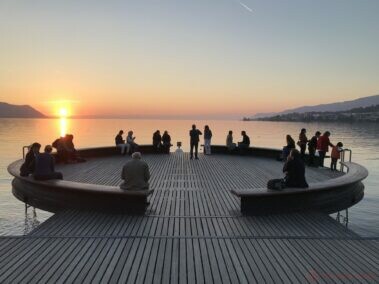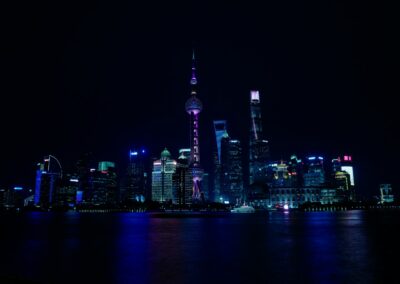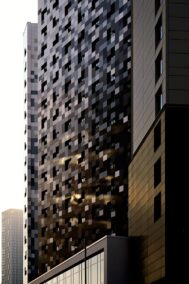The Rise of Smart Cities and Their Technological Foundations
Understanding Smart Cities and Digital Infrastructure
The advent of smart cities and digital infrastructure marks a transformative era in urban living, leveraging modern technology to enhance the quality of life, economic efficiency, and environmental sustainability. In regions like Saudi Arabia and the UAE, cities such as Riyadh and Dubai are at the forefront of this revolution, integrating cutting-edge technologies such as Artificial Intelligence (AI), Blockchain, and the Metaverse to create interconnected urban environments.
Smart cities utilize a network of connected devices, sensors, and data analytics to optimize city operations and services. This digital infrastructure allows for real-time monitoring and management of resources, leading to improved efficiency and reduced waste. In Riyadh, for example, the implementation of smart traffic management systems has significantly reduced congestion and travel times, enhancing the overall urban experience for residents.
Dubai’s ambitious smart city initiatives include the deployment of blockchain technology to enhance transparency and security in governmental and financial transactions. By creating a secure, tamper-proof digital ledger, blockchain helps streamline processes and build trust among citizens. These technological advancements not only improve operational efficiency but also foster a culture of innovation and progress, positioning Dubai as a global leader in smart city development.
Technological Advancements Driving Smart Cities
The development of smart cities and digital infrastructure is driven by several key technological advancements. AI and machine learning play a crucial role in analyzing vast amounts of data generated by smart city sensors. These technologies enable predictive analytics, helping city planners make informed decisions and proactively address potential issues such as traffic congestion, energy consumption, and public safety.
In Saudi Arabia, the integration of AI in smart city projects is exemplified by the NEOM project, a futuristic city being built from the ground up with sustainability and innovation at its core. AI-powered systems in NEOM will manage everything from autonomous transportation to energy-efficient buildings, creating a seamless, interconnected urban ecosystem that enhances the quality of life for its residents.
Generative AI and the Metaverse are also transforming urban living by providing new ways for people to interact with their environment. In Dubai, virtual reality (VR) and augmented reality (AR) applications are being used to enhance tourism, retail, and education. By creating immersive digital experiences, these technologies offer residents and visitors new opportunities for engagement and interaction, further enhancing the appeal of smart cities.
Implications of Smart Cities for Urban Living
Enhancing Quality of Life and Sustainability
The implementation of smart cities and digital infrastructure has profound implications for urban living, particularly in terms of enhancing the quality of life and promoting sustainability. In cities like Riyadh and Dubai, smart technologies are being used to create more livable, efficient, and environmentally friendly urban environments.
One of the most significant benefits of smart cities is their ability to improve resource management. Smart grids, for instance, enable more efficient energy distribution and consumption, reducing waste and lowering carbon emissions. In Riyadh, smart water management systems monitor and optimize water usage, ensuring that this precious resource is used sustainably and efficiently.
Additionally, smart cities promote a healthier lifestyle by providing residents with access to real-time information about air quality, traffic conditions, and public health services. In Dubai, smart health initiatives include telemedicine platforms and AI-driven diagnostic tools that enhance healthcare delivery and accessibility. By leveraging technology to address environmental and health challenges, smart cities create a more sustainable and resilient urban ecosystem.
Challenges and Opportunities for Business and Leadership
The rise of smart cities and digital infrastructure presents both challenges and opportunities for businesses and leaders. On the one hand, the rapid pace of technological advancement requires companies to adapt quickly and invest in new technologies to remain competitive. On the other hand, the integration of smart technologies opens up new markets and revenue streams, providing businesses with opportunities for growth and innovation.
In Saudi Arabia, businesses are capitalizing on the opportunities presented by smart city initiatives by developing innovative solutions and services that support urban development. For example, tech companies are working on AI-powered applications for smart transportation, energy management, and public safety. By aligning their strategies with the goals of smart city projects, these companies are driving economic growth and contributing to the overall success of urban development efforts.
Leadership and management skills are crucial for navigating the complexities of smart city projects. Effective leaders must be able to manage multidisciplinary teams, coordinate with various stakeholders, and ensure that projects are delivered on time and within budget. In Dubai, leadership development programs focus on equipping managers with the skills needed to lead smart city initiatives, fostering a culture of innovation and excellence.
Conclusion: The Future of Smart Cities and Urban Living
The evolution of smart cities and digital infrastructure is reshaping the future of urban living, offering unprecedented opportunities for enhancing quality of life, economic efficiency, and environmental sustainability. In regions like Saudi Arabia and the UAE, cities such as Riyadh and Dubai are leading the way in implementing smart technologies and setting new benchmarks for urban development.
For business executives, mid-level managers, and entrepreneurs, understanding the impact of smart cities is essential for navigating the future of urban living and capitalizing on the opportunities it presents. By embracing technological advancements and promoting sustainable practices, leaders can drive positive change and contribute to the development of smart, resilient, and thriving urban environments.
—
#SmartCities #DigitalInfrastructure #UrbanLiving #TechnologicalAdvancements #AI #Blockchain #Metaverse #GenerativeAI #BusinessSuccess #LeadershipSkills #UAE #SaudiArabia #Dubai #Riyadh























